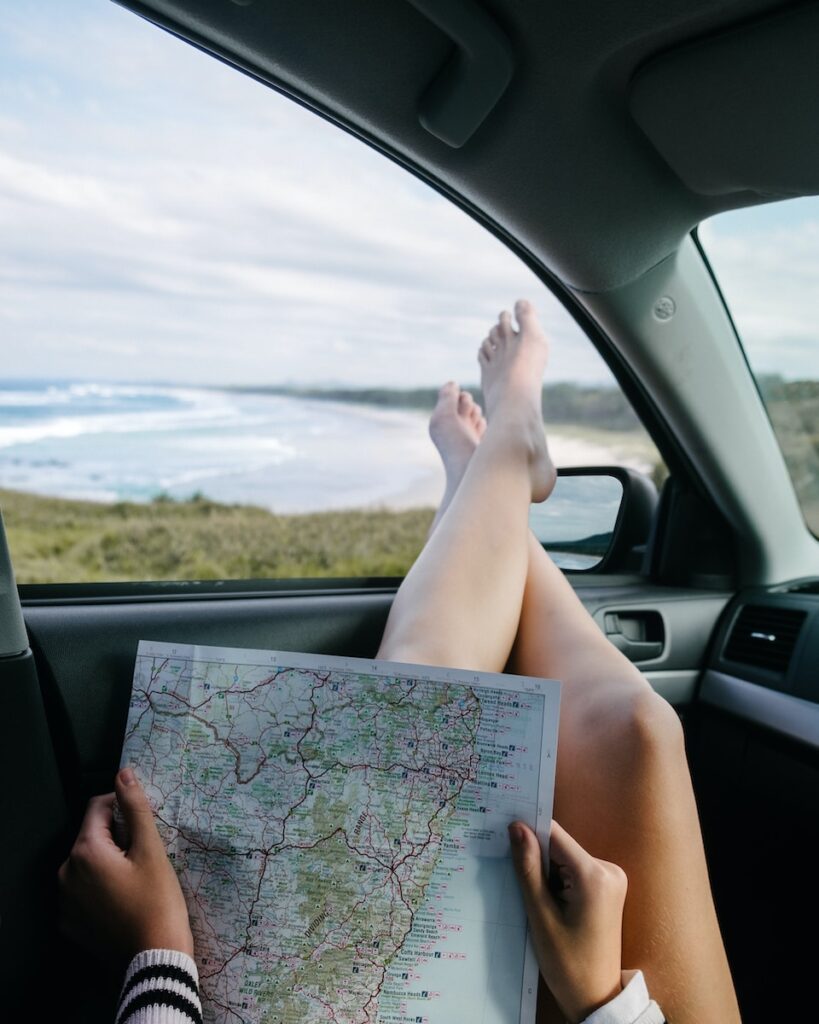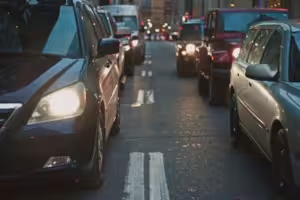
Road trips are a quintessential American experience, offering the freedom to explore new places, create unforgettable memories, and enjoy the open road. However, the costs associated with long journeys—fuel, accommodation, food, and unforeseen expenses—can quickly add up and strain your budget. The good news is that with a bit of planning and smart strategies, you can significantly reduce these costs without sacrificing the fun and excitement of your trip.
In this article, we’ll delve into five essential tips to help you save money on your next road trip. From optimizing your route to making smart decisions about accommodation and packing, these strategies are designed to keep your expenses in check while ensuring you have a memorable and enjoyable journey. By applying these tips, you can stretch your travel budget further and focus on what really matters—experiencing new destinations and creating lasting memories.
Summary
Plan Your Route Efficiently
Planning your route effectively is crucial to saving money on a road trip. By avoiding unnecessary detours and optimizing your travel path, you can significantly cut down on fuel costs and travel time. Here’s how to plan your route to maximize efficiency and savings:
Utilize GPS and Mapping Tools
Modern GPS systems and mapping tools are invaluable for road trips. They not only help you navigate unfamiliar roads but also provide real-time traffic updates and suggest the most efficient routes. By using these tools, you can avoid getting stuck in traffic jams or taking longer, less efficient routes. Many apps also offer features like fuel cost estimators and route optimization, allowing you to plan your trip with precision.
For instance, Google Maps and Waze offer traffic updates and route suggestions based on current road conditions, helping you avoid congested areas and saving you both time and fuel. Incorporating these tools into your planning process can lead to substantial savings and a smoother journey.
Avoid Peak Traffic Times
Traveling during peak traffic hours can lead to frustrating delays and increased fuel consumption. By scheduling your driving times to avoid rush hours and heavy traffic, you can reduce the time spent idling in traffic, which directly translates to fuel savings.
Consider planning your driving segments early in the morning or late in the evening when traffic is lighter. Additionally, checking local traffic reports and using apps that provide real-time traffic updates can help you navigate around congested areas more effectively.

Optimize Fuel Consumption
Fuel is one of the most significant expenses on a road trip, but there are several ways to optimize your vehicle’s fuel consumption and keep costs down. Here are two key strategies to make the most of every gallon:
Maintain Proper Tire Pressure
Keeping your tires properly inflated is essential for optimal fuel efficiency. Under-inflated tires create more rolling resistance, causing your engine to work harder and consume more fuel. Regularly checking and maintaining your tire pressure according to your vehicle’s specifications can improve your gas mileage and reduce the frequency of refueling stops.
For example, a study by the U.S. Department of Energy found that keeping your tires inflated to the recommended pressure can improve fuel efficiency by up to 3%. This small adjustment can lead to noticeable savings over the course of a long trip.
Adopt Fuel-Efficient Driving Practices
Your driving habits play a significant role in fuel consumption. Adopting fuel-efficient driving techniques can help you get the most out of every tank of gas. Here are a few practices to consider:
- Smooth Acceleration and Braking: Rapid acceleration and hard braking can decrease fuel efficiency. Aim for smooth, gradual acceleration and braking to reduce fuel consumption.
- Maintain a Steady Speed: Using cruise control on highways helps maintain a consistent speed, which can improve fuel efficiency. Avoid excessive speeding, as driving faster than 55 mph can significantly reduce gas mileage.
- Reduce Idling: Idling consumes fuel without moving the vehicle. If you’re stopped for more than a minute or two, consider turning off your engine.

Save on Costs
Accommodation can be a major expense during a road trip, but with the right strategies, you can find budget-friendly lodging without sacrificing comfort. Here’s how to save on accommodation costs:
Book in Advance
Booking your accommodations ahead of time is one of the best ways to secure lower rates and avoid last-minute surprises. Many hotels and motels offer discounts for early bookings, and you can often find better deals by planning your stops in advance.
For instance, booking through websites like Booking.com or Expedia can give you access to a range of options and special offers. Additionally, many accommodations offer price guarantees or free cancellation policies, allowing you to lock in rates without the risk of losing flexibility in your travel plans.
Consider Alternative Lodging Options
Exploring alternative lodging options can also lead to significant savings. Here are some alternatives to traditional hotels:
- Motels: Often less expensive than hotels, motels offer basic amenities and are typically located near highways, making them a convenient choice for road travelers.
- Campgrounds: If you’re open to a more adventurous experience, campgrounds can be a budget-friendly option. Many campgrounds offer low rates and provide essential facilities, such as restrooms and showers.
- Vacation Rentals: Platforms like Airbnb and VRBO offer vacation rentals that can be more cost-effective, especially for longer stays. You can find everything from entire homes to private rooms, often at rates lower than traditional hotels.
Pack Smart and Light
Efficient packing is key to minimizing road trip expenses. Packing smart not only helps you avoid extra charges but also ensures you’re prepared for any situation. Here’s how to pack efficiently and save money:
Avoid Extra Baggage Fees
If you’re traveling with airlines or using rental vehicles, packing light can help you avoid additional baggage fees. Many airlines charge for checked baggage, and rental companies often impose fees for excess or oversized luggage. By sticking to a compact, well-organized packing list, you can steer clear of these extra costs.
To pack light:
- Use Multi-Functional Items: Opt for clothing and gear that can serve multiple purposes.
- Choose Lightweight Bags: Use travel-friendly luggage that’s easy to carry and fits within size limits.
Prepare for Emergencies
Being prepared for emergencies can save you from unexpected expenses and stress. Pack a travel kit that includes essential items such as a first aid kit, roadside emergency supplies, and basic tools. Having these items on hand can prevent you from needing to purchase them at inflated prices during your trip.
Consider including:
- Basic Tools: A flashlight, multi-tool, and jumper cables.
- First Aid Kit: Bandages, pain relievers, and any necessary medications.
- Emergency Contacts: Copies of important documents and contact information for roadside assistance.
Use Discounts and Rewards Programs
Leveraging discounts and rewards programs can lead to substantial savings on various aspects of your road trip. Here’s how you can make the most of these opportunities:
Leverage Credit Card Rewards
Many credit cards offer rewards programs that can be highly beneficial for travelers. By using a credit card with cashback or travel rewards, you can earn points or discounts on fuel, accommodation, and other travel-related expenses.
For example, some credit cards offer:
- Cashback on Gas Purchases: Earn a percentage of your fuel expenses back.
- Travel Points: Accumulate points that can be redeemed for travel discounts or hotel stays.
Be sure to check your credit card’s benefits and use it for purchases related to your trip to maximize your rewards and savings.
Sign Up for Travel Discounts
Numerous travel-related memberships and discount programs can provide additional savings. By signing up for these programs, you can access special offers, discounted rates, and exclusive deals.
Consider joining:
- Hotel Loyalty Programs: Programs like Marriott Bonvoy or Hilton Honors often provide members with discounted rates, free nights, and other perks.
- Travel Discount Websites: Sites like Groupon or Hotwire offer deals on accommodation, attractions, and dining that can help you save money during your trip.
Conclusion
In conclusion, saving money on a road trip doesn’t mean sacrificing enjoyment or adventure. By implementing the strategies outlined in this article—planning your route efficiently, optimizing fuel consumption, saving on accommodation costs, packing smartly, and using discounts and rewards programs—you can significantly reduce your expenses and make the most of your journey.
Remember, every dollar saved on fuel, accommodation, or other travel expenses is a dollar that can be used to enhance your road trip experience, whether it’s enjoying a special meal, exploring a new attraction, or simply having more flexibility in your travel plans.
If you’re planning a road trip soon, take these tips to heart and watch your savings grow. For more personalized advice or if you need assistance with shipping your vehicle for your trip, leave a comment below or reach out to us. If you found this article helpful, please share it on Facebook or with friends who might benefit from these tips. Safe travels and happy road tripping!

